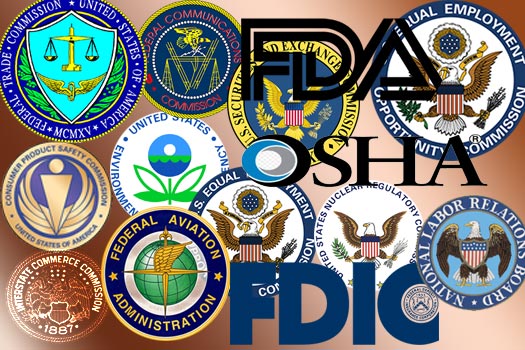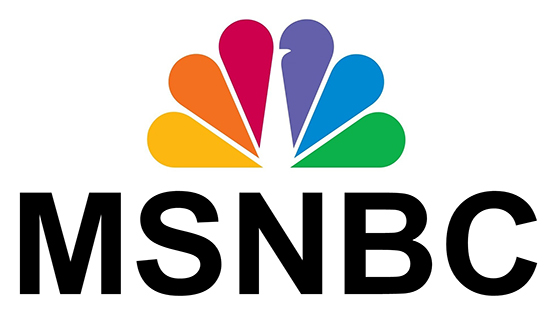The fourth branch.
Listen to the broadcast of You Tell Me on KTBB AM 600, Friday, May 31, 2013.
MP3 Download
I learned in school that our government consists of a carefully crafted balance of three co-equal branches – executive, legislative and judiciary – each acting as a check on the potential excesses of the other two. I learned that our government was set up in this manner because the founders were deeply fearful of a central government with too much power. As we have frequently mentioned in this space, the constitutional convention in Philadelphia in 1787 consisted in large measure of very heated arguments as to the best way to provide the government with the power necessary to carry out its legitimate functions without allowing it to become so powerful as to be tyrannical.
For most of our history the actual functioning of the federal government hewed very closely to the vision of the founders. In fact, for most of our history, the federal government played a rather small role in everyday life.
That began to change in the 1930s under President Franklin Roosevelt’s New Deal and gathered additional steam in the 1960s with the enactment of various components of President Lyndon Johnson’s Great Society
What has since emerged is a new and largely unchecked fourth branch of government. Call it the regulatory branch.
The regulatory branch consists of about 50 federal agencies under various cabinet-level departments that have over time accumulated astonishing autonomy to write and enforce rules and regulations.
Congress passes fewer than 300 public laws in a typical year. But federal agencies finalize thousands of rules and major regulations – most having the force of law. In the past 20 years, nearly 82,000 final rules have been issued, equal to about nine per day.
Federal agencies from the IRS to the EPA to OSHA to the EEOC have the power to subpoena, to confiscate property and to initiate civil and criminal prosecution. Most agencies have their own police forces.
The vast majority of the power in these agencies resides in the hands of career bureaucrats who are protected by civil service rules making them very nearly impossible to fire. Thus much of the fourth branch of government operates beyond the reach of the other three branches. There are simply so many career government employees proposing and implementing so many regulations that it is not physically possible for either the Congress or the president to even keep track of them all, let alone act as an effective countervailing force. The regulatory branch, in large measure, operates without any effective check or balance. For once, I’ll give David Axelrod credit for being right when he said that the government is simply too big for any president to keep an eye on. When he said that, he was without explicitly saying so, referring to the fourth branch.
No one would seriously argue that there is no need for sensible regulation. Every game needs a set of rules and a referee.
But what we have today, particularly at the federal level, goes well beyond sensible. The level of regulation we now have is imposing enormous economic costs that act as a hidden but very significant tax while simultaneously threatening basic liberties. To illustrate the latter, I give you the current IRS scandal.
To be sure, the regulatory branch has grown under both Republican and Democratic congresses and administrations. But not so rapidly as it has under the Obama administration. Obamacare alone is driving tens of thousands of pages of new regulations that will touch every single American in a very personal way.
The expansion of the fourth branch constitutes the essence of the conservative argument against big government. It’s not because conservatives don’t care about the environment or worker safety or equitable rules regarding stocks, bonds and banking.
It’s because when the fourth branch reaches critical mass it will prove a crushing burden that will be nigh impossible to get back under control.
The greatest fear is that that day may have already come.









One of your best columns yet. The average person has little idea how regulations are strangling our personal and economic future. I’ll be passing this along to my friends.
This is very true when we KNOW what rules we obey. BUT when the administration changes the rules ( ie current IRS) or secretly changes the emphasis it is impossible.
If this hadn’t come out, we would still yet be laboring without KNOWING we could NEVER win. Who knows how many more scandals will come out tomorrow .
Without anyone obeying the Constitution , we are shooting in the dark.
I wondered why Obama was out playing golf & so calm on the day of the elections.
I know there is a LOT more that would make this demeanor possible on the day of a Nat’l election.
This is the 1st election this century that was not CONTESTED hugely & for months.
Betcha this thing reaches all the way to this last election.
But here, we sit, the naivetee expecting the honorable.
That’s how Obama got away with all this so far.
He thinks( knows) we are reluctant to believe what is right in front of our eyes.
Thank You Mr. Gleiser.
Keep-up the GOOD work.
I have forwarded this link to everyone in my contact list. You have said MUCH in this article and, said it well. I hope everyone reads/listens to it, , , , twice.
Again, thank you, thank you and, please, continue the good-work.